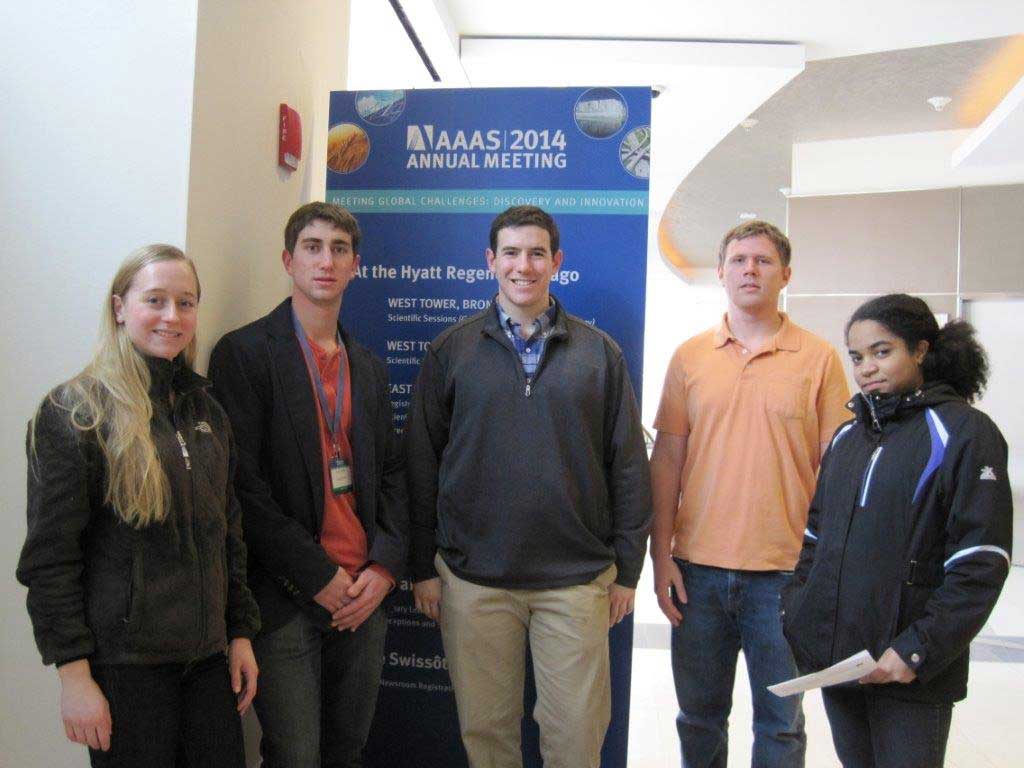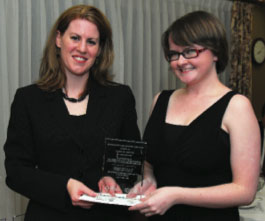Major / Minor
Why Major or Minor in Science & Environmental Writing?
Science and Environmental Writing is a suitable major for several types of students.
Students interested in writing
Science and Environmental Writing is a suitable major for students who enjoy writing and who want a specialty beyond general journalism, particularly if they have any interest in science, environment, medicine, health, or social science.
Students interested in science, medicine, health, technology, environment and related disciplines
Science and environmental writing is a good major for students interested in science, medicine, health, technology, environment and related disciplines but who do not want to major in the sciences. Science and Environmental Writing gives such students the opportunity to concentrate in one or two science subjects, or take a broader variety of science courses. In particular, this program partners well with programs in Environmental Studies, Science, Technology and Society, or Health, Medicine and Society.
Students with a major in science, engineering, computer science, earth and environmental science, and other sciences
Students who are majoring in science or engineering often find that double-majoring in Science and Environmental Writing or minoring in it gives them skills and knowledge that complement their majors. Once these students leave Lehigh for employment or graduate school, they find that the skills and knowledge gained from their science and environmental writing courses give them advantages over classmates and later over fellow employees.
Students who wish to go to graduate school
Courses in the Science and Environmental Writing Program prepare students for all types of graduate studies by their concentration on research, critical thinking and writing skills. Various graduate programs selected by former students include those in science, journalism, science writing, social studies of science, and law.
Journalism / Science and Environmental Writing Major
 Lehigh science writing students at the American Association for the Advancement of Science annual meeting as part of the Science Writing Field Research Program.
Lehigh science writing students at the American Association for the Advancement of Science annual meeting as part of the Science Writing Field Research Program.For Course Descriptions Click Here...
Core Courses
Jour 1 Brown & White (1)
Jour 2 Brown & White (1)
OR Jour 231 Science Writing Practicum (1)
Jour 123 or 311 Basic Science and Technical Writing (4)
OR Jour 21 Writing for the Media (4)
Jour 124 Politics of Science (4)
Jour 125 Environment, the Public and the Media (4)
Jour 323 Health and Environmental Controversies (4)
OR Senior Seminar: a journalism or communication course at the 300 level (4)
Jour 361 Internship (4)
Subtotal: 22
Journalism or Communication Courses
Jour 23 Editing (4)
Jour 24 Visual Communication (4)
Jour 298 Writing for the Media II (4)
One other journalism or communication course (4)
Subtotal: 16
Total required credits: 38
Collateral Requirements
A minimum of 16 credits in the physical, biological, environmental or social sciences or engineering is required. These hours can be concentrated in any one area or distributed among all five areas, although an area concentration is recommended. Dual majors in Science and Environmental Writing and a science are encouraged. Science courses should be chosen in consultation with the major adviser. Math 12, Basic Statistics, is the preferred math course for this major, however, calculus will be accepted.
Science and Environmental Writing Minor
Jour 231 Science Writing Practicum (1)
OR Jour 1 Brown and White (1)
Jour 123/311 Basic Science and Technical Writing (4)
OR Jour 21 Writing for the Media (4)
OR Jour 114/314 Technical Communication (4)
Jour 124 Politics of Science (4)
Jour 125 Environment, the Public and the Mass Media (4)
Jour 323 Health and Environmental Controversies (4)
Total credits required: 17
Internships
Internships give students an opportunity to work in a professional setting while earning credit. Science and Environmental Writing students have interned with organizations such as:
- National Science Foundation
- International Food Information Council Foundation
- Time magazine
- Da Vinci Science Center
- Medstar Television Inc.
- Men's Health magazine
- Muscular Dystrophy Association
- National Geographic Adventure magazine
- National Geographic Channel
- Pacific Northwest National Laboratory
- Prevention magazine
- Runner's World magazine
- The Express-Times
- The Morning Call
- Women's Health magazine
 Caitlin Shenk Stein, '08 (right), a Science and Environmental Writing major, received the Merck Science Journalism Award. She was one of 12 students selected nationally.
Caitlin Shenk Stein, '08 (right), a Science and Environmental Writing major, received the Merck Science Journalism Award. She was one of 12 students selected nationally.
